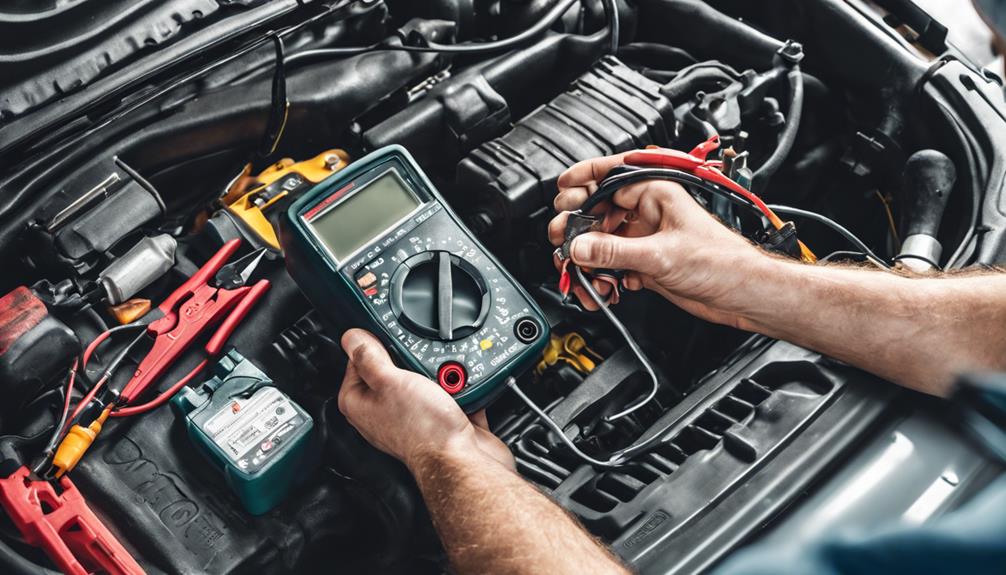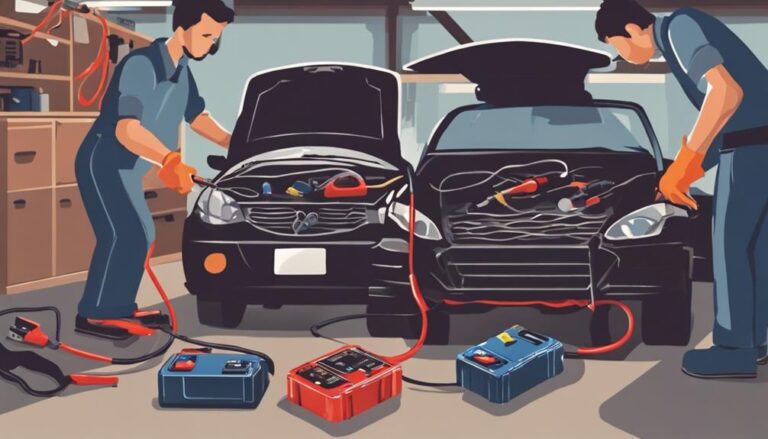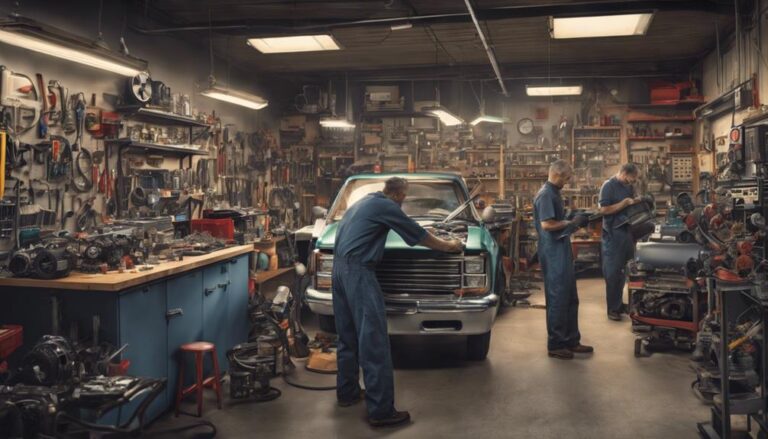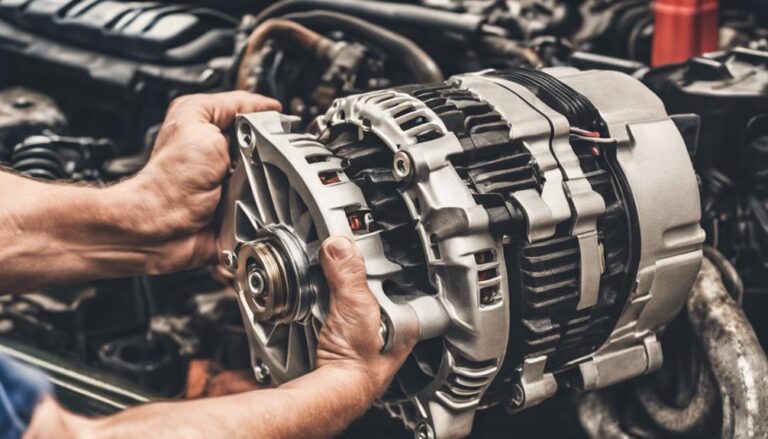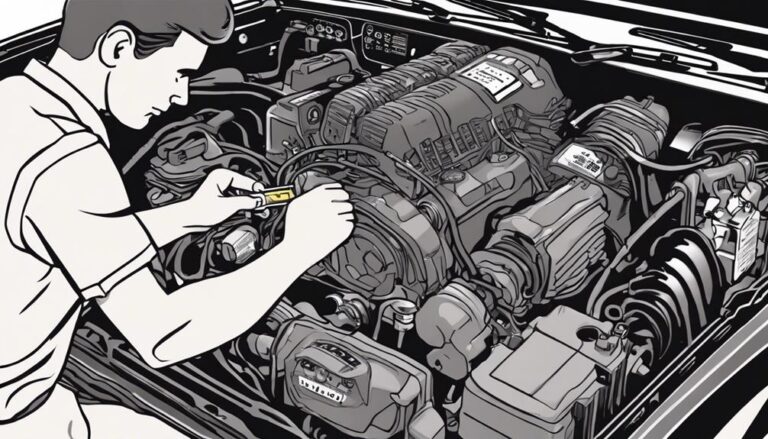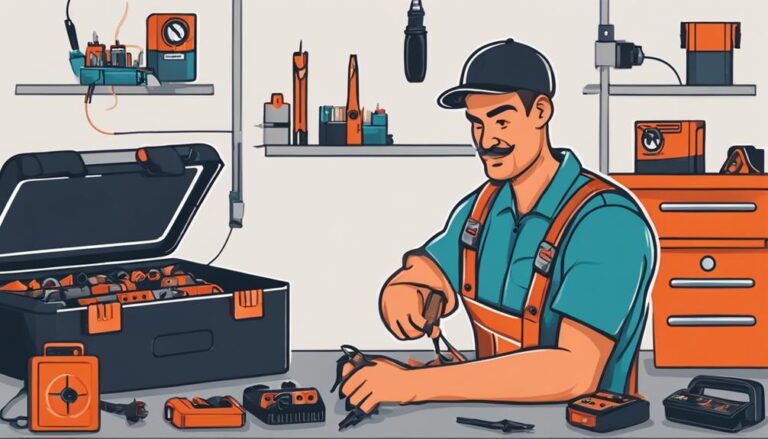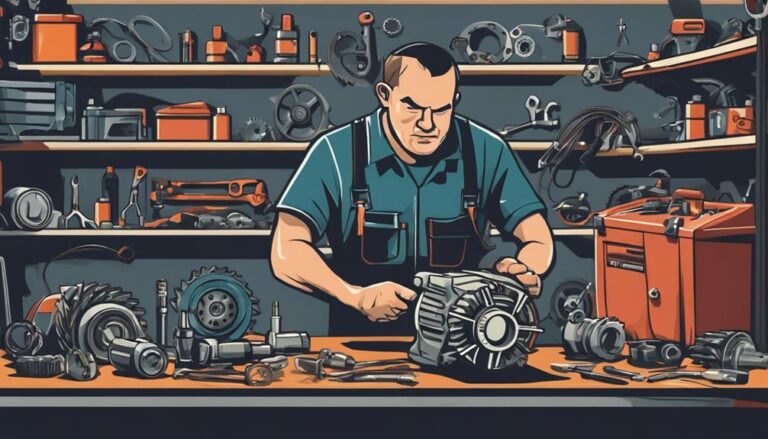Troubleshooting Common Alternator and Starter Issues
When your vehicle's electrical system falters, it's like finding a maze in the dark. Imagine the frustration of a car that won't start on a busy morning, or the anxiety of a sudden breakdown on a deserted road.
Understanding the intricate dance between the alternator and starter is key to preventing these automotive nightmares. Ready to unravel the mystery behind those pesky electrical glitches and guarantee your vehicle stays reliable?
Key Takeaways
- Dimming lights and abnormal sounds signal alternator or starter problems.
- Test battery and alternator voltage for irregularities.
- Ensure clean starter connections and investigate start-up issues.
- Both alternator and starter are crucial for vehicle electrical and ignition systems.
Common Symptoms of Failing Alternator
If you notice dimming or flickering headlights and interior lights in your car, these could be common symptoms indicating a failing alternator. The alternator is responsible for charging the battery and providing power to the electrical system in your vehicle. When the alternator starts to fail, it may not be able to recharge the battery properly, leading to dimming lights as the battery loses power. This can also cause fluctuations in the electrical system, resulting in flickering interior lights.
A failing alternator can have a direct impact on the battery as well. If you experience frequent battery replacements due to a loss of charge, it may be a sign of an underlying alternator issue. The alternator should continuously charge the battery while the car is running. If this process is disrupted, the battery won't hold a charge, leading to repeated replacements. Addressing alternator problems promptly is crucial to prevent further damage to the battery and other electrical components in your car.
Identifying Signs of Failing Starter
When diagnosing potential issues with your vehicle's starting system, listen for unusual sounds like whirring, grinding, or clicking, as these can be signs of a failing starter.
If you attempt to start your car and hear a loud single click but the engine doesn't crank, this could indicate a bad starter. Another indicator is when the instrument cluster and headlights are functional, but the engine won't start, pointing towards a starter problem.
Severe cases of starter malfunction may lead to smoking or overheating, highlighting the importance of a properly functioning starter for the vehicle to start. The starter plays an essential role in initiating the engine's combustion process, making it vital for the overall operation of the car.
If your car won't start and you experience any of these symptoms, the starter could be the culprit behind your starting problems.
Troubleshooting Alternator Issues
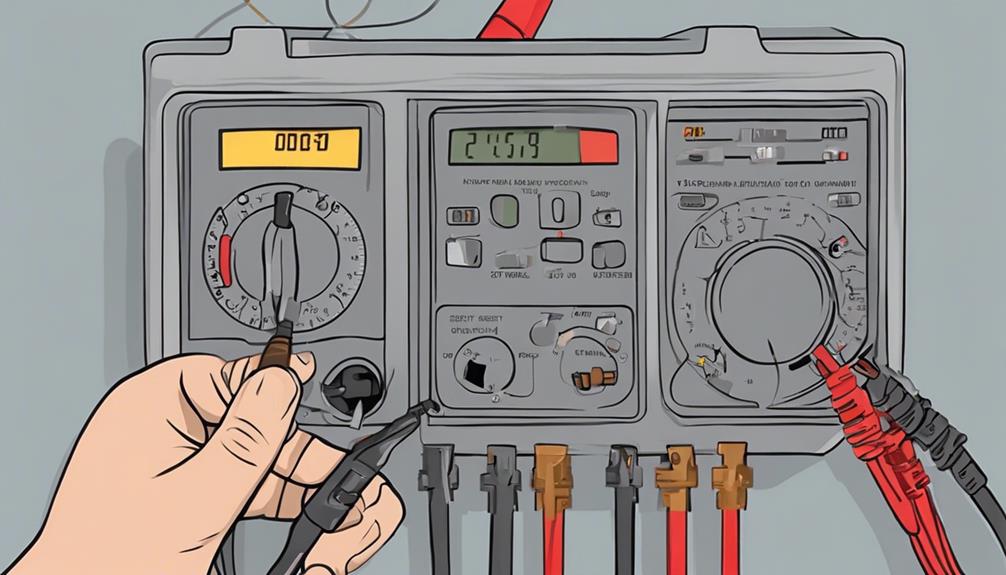
To effectively troubleshoot alternator issues, pay close attention to any dimming or flickering lights while driving, as these can be important indicators of a failing alternator. Other symptoms of a bad alternator include abnormal voltage gauge readings, illuminated check engine lights, and unusual noises like grinding or squealing coming from the alternator area.
A failing alternator can lead to the car battery repeatedly dying, which may result in difficulty starting the vehicle. Additionally, you might notice headlights that are dim, bright, or flickering inconsistently.
If you suspect a bad alternator, it's vital to address the issue promptly to avoid further damage to the electrical system of your vehicle. Consult a professional mechanic for an accurate diagnosis and proper repair of alternator problems. Remember, proactive maintenance and timely repairs can help prevent more severe issues down the road, ensuring your car operates smoothly and reliably.
Recognizing Starter Problems
Pay close attention to the sounds your engine makes when starting, as unusual clicking, grinding, or whirring noises could be signs of starter problems. When you attempt to start the engine and hear a single loud click without the engine cranking over, it may indicate a faulty starter.
Another indication of a starter issue is if your instrument cluster and headlights work, but the engine fails to start. Keep in mind that a properly functioning starter is essential for the engine to start and run smoothly.
In severe cases of starter problems, you might observe smoking or overheating, highlighting the importance of addressing starter issues promptly. Remember, the starter is a crucial component in the engine's ignition process, so any irregularities during the start-up phase should be investigated to guarantee engine performance.
Diagnostic Steps for Alternator and Starter

For accurate diagnosis of alternator and starter issues, begin by checking the battery voltage to confirm it falls within the range of 13-14 volts for proper charging capability.
Follow these steps to troubleshoot potential problems with your car's alternator or starter:
- Test the Alternator: Use a voltmeter to measure the voltage output of the alternator. It should read between 13.5-14.5 volts when the engine is running. If the reading is notably lower, the alternator may be failing to charge the battery properly.
- Check the Battery: If the battery voltage is outside the normal range, consider charging the battery or replacing it if necessary. A weak battery can cause issues with starting the car and affect the performance of the alternator.
- Inspect Starter Connections: Make sure that all connections to the starter motor are clean and tight. Loose or corroded connections can prevent the starter from functioning correctly, leading to difficulties when starting the car.
Frequently Asked Questions
How Do You Tell if Starter or Alternator Is the Problem?
To determine if the starter or alternator is the issue, observe warning signs like whirring or clicking noises (starter) and check engine light or voltage fluctuations (alternator). Use diagnostic tools for testing. Seek professional help for accuracy.
Can Starter and Alternator Go Bad at the Same Time?
Yes, the starter and alternator can fail simultaneously due to electrical issues and wear. When facing this, a diagnostic process by a professional is essential. Proper testing and replacement can resolve the problem efficiently.
What Could Cause a Car Not to Start if Battery Starter and Alternator Are Good?
If your car won't start, even with a good battery, starter, and alternator, it might be due to issues like a faulty ignition switch, wiring problems, fuel pump or spark plug trouble, or low engine compression.
What Is the Most Common Fault With an Alternator?
The most common fault with an alternator is a defective voltage regulator. It can lead to issues like overcharging and voltage drop, affecting the charging system. Checking belt tension is important to make sure proper alternator function.
Conclusion
To sum up, troubleshooting alternator and starter issues is like solving a puzzle to keep your vehicle running smoothly. By paying attention to the warning signs and taking diagnostic steps, you can identify and resolve any issues efficiently.
Remember, a well-maintained electrical system is like a well-oiled machine, keeping your car in excellent condition. So, don't hesitate to address any problems promptly to avoid getting stuck on the road.

